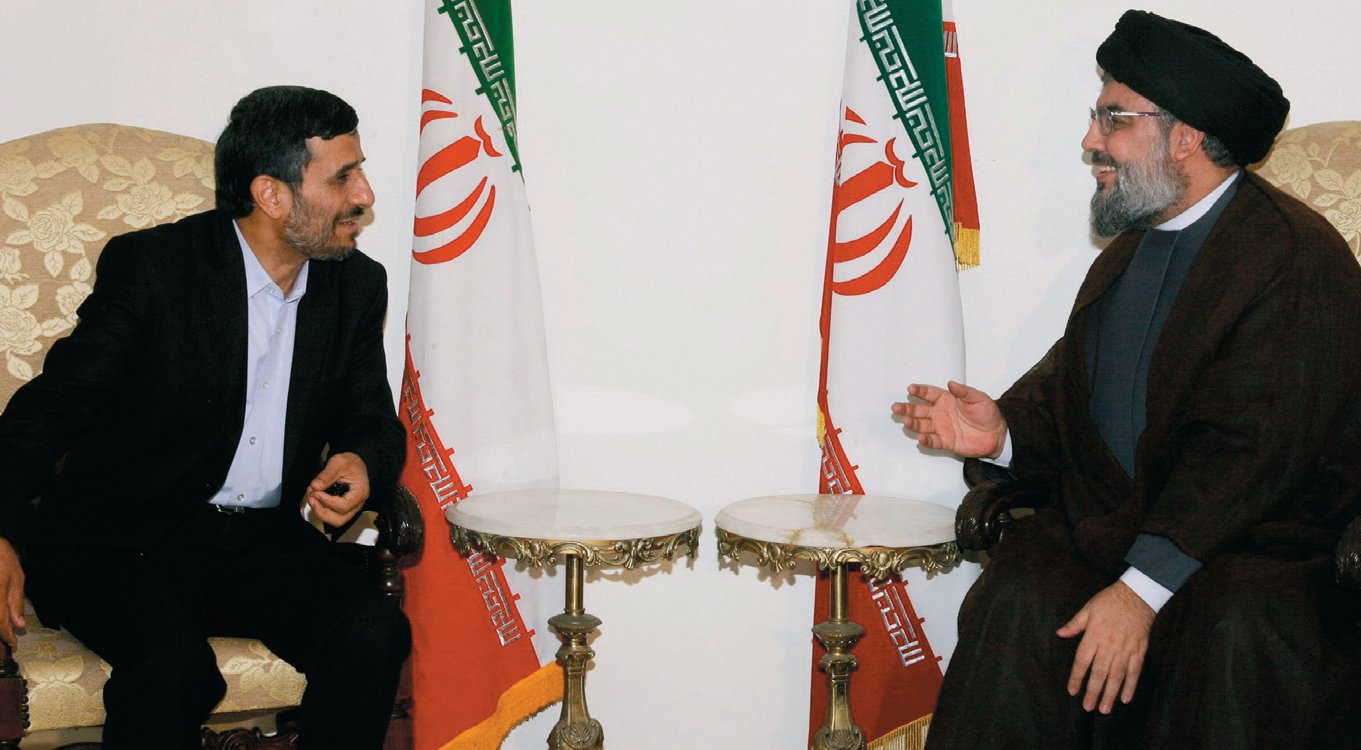Asia
Professor Walid Phares to Week Life in China: "Hezbollah has penetrated all communities in Lebanon, in addition to its military and financial control of the Shia community' But the majority of Christians, Sunnis, Druses and many in the Shia community, that is Lebanon's popular majority rejects the pro-Iranian organization, as an ideology and as a militia."
PS: Following is a summary of the article published by Xu Jingjing in Life Week Magazine, China, this week.
--------------
Iranian President Ahmadinejad visited Lebanon on Oct. 13 and 14. During his two-day official visit, Ahmadinejad was addressing a huge crowd in Bint Jbeil - just a short distance from the border with Israel - as he tours southern villages destroyed during the 2006 Israel-Lebanon conflict.
Iranian domestic public opinion sang high praises of his visit. Some politician said the visit was a symbol showing the growing influence of Iran in this region.
Historically, Iran has very close relation with Hezbollah. Dr Walid Phares, the senior fellow at the Foundation for Defense of Democracies told journalist:“the Iranian regime has been at the onset of launching the Hezbollah organization in the early 1980s. The Iranian Islamic Revolutionary Guard (Pasdaran) dispatched teams to the Bekaa valley and helped forming Hezbollah between 1981 and 1982. Since then Tehran supplied the organization with funds, arms and logistics to enable it seize control inside Lebanon. The so-called Iranian aid to Lebanon is in fact aid coming from the Pasdaran to Hezbollah and spent on members of Hezbollah, their families, supporters and areas of control. Before 2006, reports mentioned around 300 million $. al Nahar, a Lebanese daily mentioned the number one billion $ after 2006.” “The visit of President Ahmedinijad is inscribed in the framework of asserting the power of Hezbollah inside the country, bringing Lebanon further under the Iranian umbrella and signaling to Israel that the northern border is now a border under the control of Tehran.”
The background of this visit was Iran got another chance to expand its influence in Lebanon. In August, U.S. decided cutoff of U.S. aid to the Lebanese military, because of concerns that the U.S. aid might be buying arms that could be turned against Israel. Iran reacted very quickly and said it would provide military aid to Lebanon instead of U.S.. “The modest amount of U.S. military aid given to Lebanon was no threat to Israel, but the United States believed that strengthening the Lebanese armed forces would increase the power of the pro-Western central government”, Stephen Zunes, Professor of University of San Francisco said:“As a result of the border clash with Israel in August, however, the United States felt a need to punish the Lebanese for initiating the incident.” But this time, Ahmadinejad did not sign any military aid agreement in Lebanon.
Ahmadinejad got great welcome in Southern Lebanon. Judith Harik, President of Matn University, Lebanon, told the journalist that Iran spends millions in Lebanon not only onweapon systems for Hezbollah, but on repairing highway networks damaged in the 2006 war with Israel, water networks, housing and other projects that the Lebanese government can not afford to handle. “Travelling through parts of the south one sees extensive roadwork underway and signs indicating that this work is a gift from the Islamic Republic of Iran”, she said:“ This important state visit of course polished Hezbollah's image and sent a strong message regarding its close and unwavering relationship with one of the region's growing powers. The masses that turned out to greet the Iranian leader again showed Hezbollah's capacity to mobilize huge demonstrations and thus the solidarity that remains between this organization and its followers.”
It greatly embarrassed Rafik Hariri’s pro-west government in Lebanon. In a statement issued on Oct. 1, the March 14 alliance described Mahmoud Ahmadinejad's upcoming visit as a "provocation." “Iran's regime offered to arm the Lebanese Army, but the President and the cabinet of Lebanon prefer not to show a full alignment on Iran fearing the labeling of "ally to a terrorist state" by the international community.” Dr. Phares said. But this was what the government have to confront. “Hezbollah is deeply involved in domestic politics since it wants to seize power inside the country. It has built influences inside the Sunni, Christian and Druse communities”, Dr. Phares said: “A majority among these three communities, which together form a majority across the country, rejects Hezbollah's drive to seize the country, but the latter has an intelligent leadership which is using the Iranian assets smartly. The conflict between the Hezbollah led March 8 Coalition and the March 14 Coalition has never ended.”
 |
| Ahmedinijad and Nasrallah |
© Copyright 2003-2018 by walidphares.com
Top of Page
|







